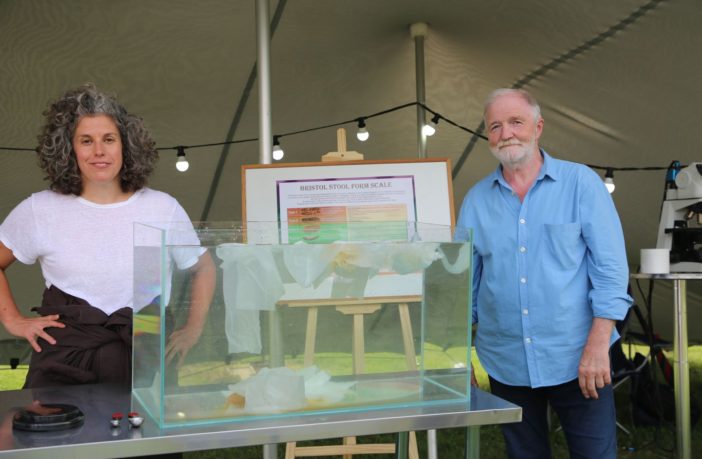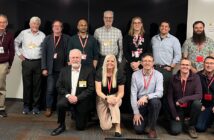A fascinating look into the world of sewage and how scientists are searching for ways to upcycle human waste comes to our television screens this week.
The Secret Science of Sewage a BBC/Open University co-production, explores the biology, chemistry, and history of feces – looking inside the tanks of one of the UK’s largest and most technologically advanced sewage works.
The programme airs tonight Thursday 18th March at 9pm on BBC2 with presenters Dr George McGavin and Dr Zoe Laughlin investigating the revolutionary science that goes into finding vital renewable resources and undiscovered life in human waste.
Searching for potential lifesaving properties
Teaming up with world class scientists, they search for biological entities in sewage with potentially lifesaving medical properties, find out how pee can generate electricity, gas from poo can fuel a car and how nutrients in waste can help solve the soil crisis.
They follow each stage of the sewage treatment process, revealing what the stuff we flush can tell us about how we live today, and the mindboggling biotechnology being harnessed to clean it, making the wastewater safe enough to return to the environment.
Dr Mark Hirst, Senior Lecturer in Biology Faculty of Science, Technology, Engineering & Mathematics at the OU, and programme consultant said:
“We add to the problem every day and think little about what happens once the loo is flushed. But this show takes a raw look at the problem, head on, if not hands-on, to show you what is possible in upcycling.
“Given the billions of bacteria we share our bodies with, it’s surprising how little most of us know about them until something goes wrong. From antibiotic resistant strains to imbalances associated with certain gut disorders, investigating and working with bacteria is an integral part of our biology and health teaching.”
The programme shows brand new biological life forms in Minworth’s sewage vats that can potentially be used in phage therapy for treating bacterial infections.
Co-presenter Dr McGavin also investigates a new type of pee-power building brick that if super-sized, could see toilets powering our future homes. And, in the biomethane plant, they reveal that a staggering 28,000 homes a year are supplied with gas for heating and cooking.
Visit OpenLearn, the OU’s free learning website, to find our more about the science behind this fascinating programme.
This programme was commissioned by Broadcast and Partnerships and is supported by STEM, with particular relevance to R28 – BSc Hons Combined STEM, Q71 – BSc Hons Health Sciences, and R58 – BSc Hons Biology.
- Commissioned by Dr Caroline Ogilvie, Head of Broadcast & Partnerships
- Academic Consultant Dr Mark Hirst
- Media Fellow Dr Claire Kotecki
- Broadcast Project Manager Matthew Ray
- Digital Content Producer Alison Tang
Image copyright: Tern Television Productions Ltd



